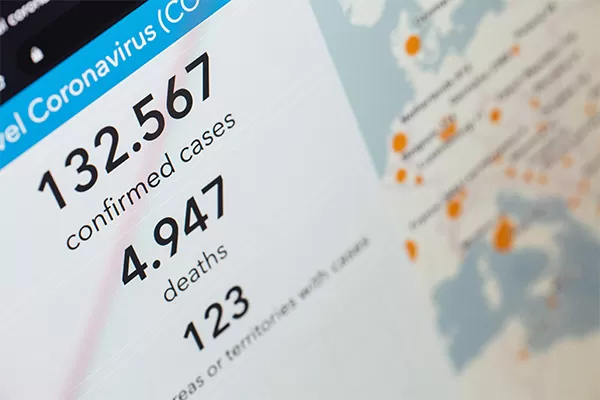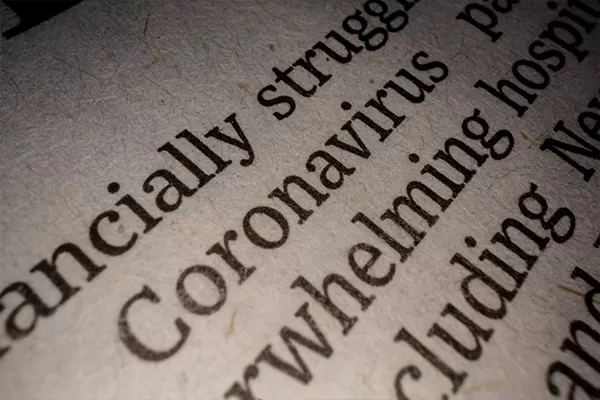
Publications and Current Research
Critica works with collaborators across the globe to contribute to ongoing scientific discussions about how to ensure our information environments are conducive to both individual and public health.

Who We Are and What We Are Studying:
Critica is a non-profit organization that was established to learn about how people get information about science. Our mission is to improve the public’s understanding of scientific consensus, counteract misinformation about health and science, and promote the use of scientific evidence in public policymaking.
We are now engaged in a research study to better understand attitudes and beliefs about three topics:
- The safety of drinking water supplied by cities and towns in the United States (the municipal water supply)
- The safety and effectiveness of vaccines, including the vaccines against COVID-19.
- Reproductive health, including contraception, pregnancy, and abortion.
We are testing different ways of discussing these issues with people and encouraging them to make decisions based on scientific evidence.
What We Are Doing:
We search the internet for comments people posted about drinking water, vaccines, and reproductive health on public websites and social media platforms. Then we make comments and enter the conversation.
Our comments take the form of asking questions to better understand what people think about these topics and where they get their information. We also try to supply scientific facts when they are available and respond to incorrect or misleading statements when possible to ensure people are not left misinformed.
Who Should Participate?
If you choose to interact with us on these public forums, you are agreeing to participate in this research study. Only adults aged 18 and up should respond to our posts.
Who Supports Us?
Critica’s work is funded by research grants and the donations of individuals who support Critica’s mission. This project is funded by the Robert Wood Johnson Foundation. The Foundation has no editorial control over our work. We also receive funds from Weill Cornell Medical College.
Publications

Applying the Epidemiological Model to Counter Misinformation

Implications of COVID-19 Vaccine Hesitancy

Screening for Information Environments

Community-Oriented Motivational Interviewing

Responses to Long Covid

Leveraging Infodemiologists to Counteract Misinformation
Medical Disclaimer:
Critica and its representatives do not provide medical advice and nothing that we say should be interpreted as medical advice. You should always consult your personal healthcare provider about your health status and issues. We are not responsible for anything that happens to you from reading what we write. Our intent is only to provide information about scientific evidence.
What we do with the information and how we store it:
We make written transcriptions of the conversations and analyze them to see whether people’s comments are positive or negative about the topics and whether they change over the course of the conversation. Any identifying information that a person chooses to post will be deleted from these transcripts so that we will not keep a record of anyone’s identity. After removing any identifying information from online posts, we store data in our database which is encrypted and stored on password-protected computers.
We encourage you NOT to provide any personal or identifying information on any of the posts you make on sites or platforms that we are participating in. We do not ask or keep any identifying information. Your participation is completely voluntary, and it is up to you whether you make comments or read anyone else’s comments.
We would like to hear about what you think of our comments, so if you wish you can email us your thoughts at info@criticascience.org.
Dr. David Scales, Critica’s Chief Medical Officer, is also affiliated with Weill Cornell Medical College. This study is being performed in collaboration with Weill Cornell Medical College and has passed Institutional Review Board (IRB) review (Protocol # 20-10022858) and was exempted from review by an additional IRB.
Your Rights:
You have the right to ask to see any information about you that we have collected and to direct us to delete that information. However, remember that because we do not keep any identifying information, if you want us to provide you with a post(s) you have made or to delete that post(s), you must provide us with enough information about the post so we can locate it. You can contact us to make such requests at info@criticascience.org.
Questions and Concerns:
If you have any questions or concerns about this research, you can reach out to the research team at info@criticascience.org or reach the Weill Cornell Medicine IRB at 646-962-8200 or via email at irb@med.cornell.edu